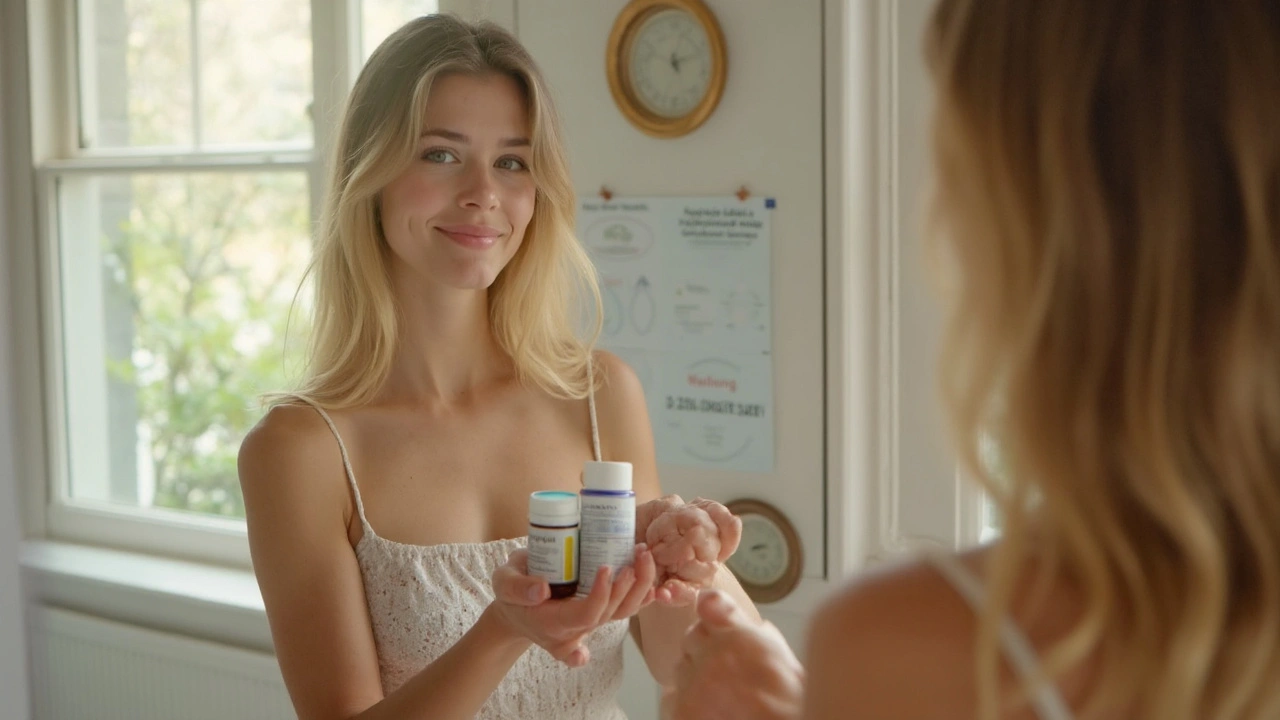Skincare: Simple tips, common problems and safe treatment choices
Skincare doesn't have to be complicated. This tag page groups our practical articles on skin issues, medicine choices, and when to see a doctor. You'll find clear guides on spots, rashes, allergic swelling, and treatment options that matter.
Start with how to spot real problems. Mottled skin discoloration can be harmless or a sign to see a dermatologist. Check for sudden color changes, spreading patches, or accompanying symptoms like pain, itching, or shortness of breath. If you notice those, see a professional quickly. Our article on mottled skin explains common causes and what clues mean trouble.
Allergic reactions to medications often show on the skin. Angioedema causes sudden swelling and can be linked to certain drugs. Learn which medicines commonly trigger this, what early signs look like, and basic steps to protect yourself. If breathing or swallowing becomes difficult, call emergency services.
Acne and infections sometimes need antibiotics. We cover real alternatives to common antibiotics like Vibramycin and practical tips from users about drugs such as levofloxacin. If you’re considering antibiotics for skin infections or acne, talk to your doctor about resistance, side effects, and safer options for long-term use.
Over-the-counter options matter too. Simple choices like gentle cleansers, non-comedogenic moisturizers, and sun protection make a big difference. Avoid harsh scrubs and multiple strong actives at once—too much can irritate skin and make issues worse. For dryness or flaking, switch to creams with ceramides or glycerin and cut back on hot showers.
When dealing with rashes or chronic conditions, track what helps. Keep a short diary: note products, food, medications, and flare timing. That record makes it easier to spot triggers and gives your clinician useful clues. We explain how to create this diary and what questions to ask at the appointment.
Cosmetic concerns like spotty pigmentation often need both prevention and targeted care. Sunscreen prevents worsening of dark spots, while topical treatments can gradually improve tone. For stubborn discoloration, a dermatologist can recommend prescription creams or procedures.
Safety when buying skin-related medication online is covered in several posts. We review how to spot legit pharmacies, what credentials to check, and red flags like unrealistic prices or no pharmacist contact. Buying medicine safely protects your skin and overall health.
What to read next
Start with mottled skin to learn warning signs, then read angioedema for drug-related swelling. Follow up with Vibramycin alternatives if acne needs treatment, and read the Levoflox user piece for real-world side effect tips. If you plan to buy meds online, read our pharmacy safety posts before ordering. Save links and jot down symptoms so you can share them at your appointment easily.
